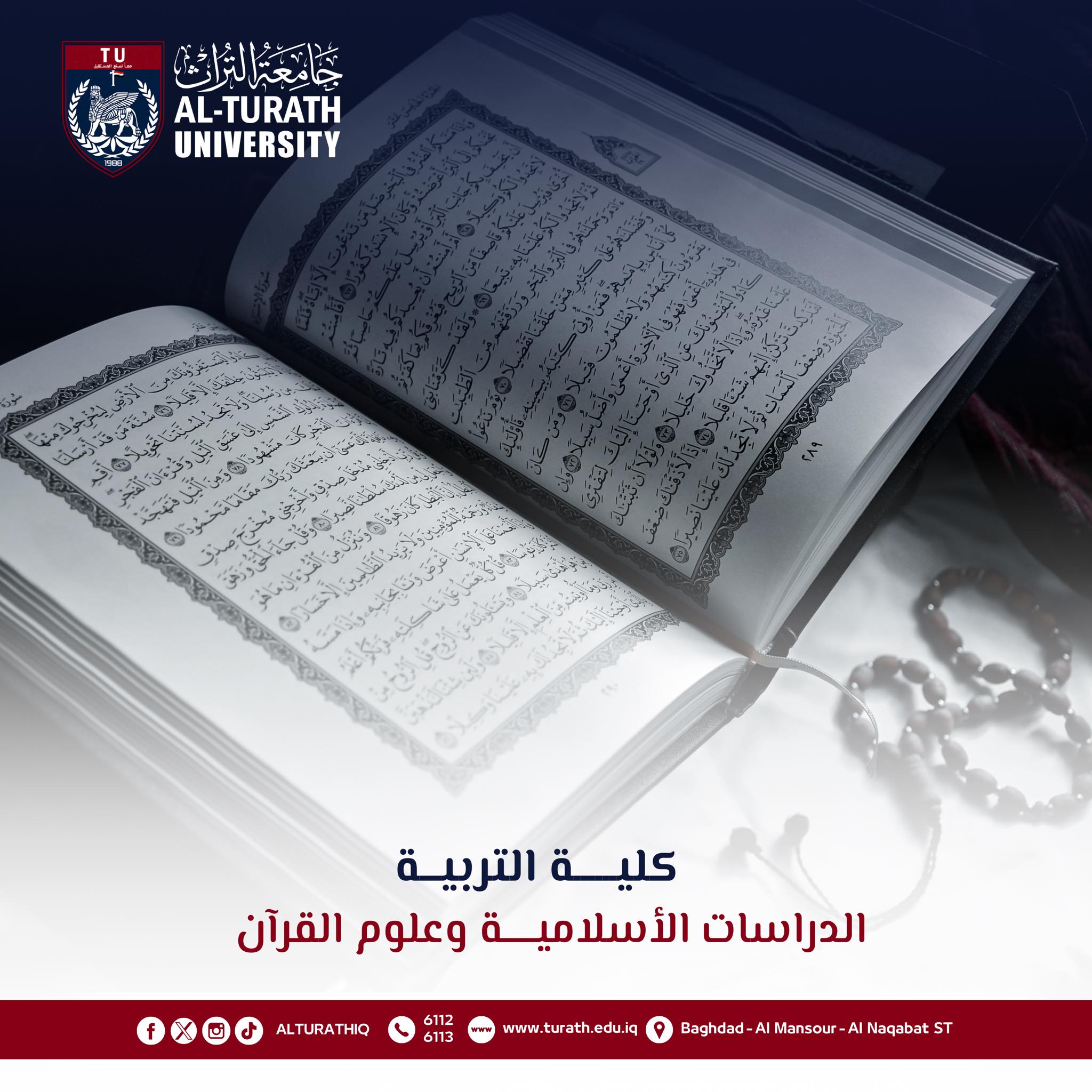Department achievements
Vision, Mission, Objectives
Vision
The teaching of students encompasses Islamic sciences, exegesis, hadith, philosophy, and comparative religion, with a focus on linguistic, legal, intellectual, psychological, and educational sciences. The objective is to disseminate the culture of Islamic religion and its relationship with organizing the lives of societies, as well as adjusting the behavior of individuals in accordance with a humanistic vision.
Mission
To deliver a balanced Islamic scientific discourse to the public, in accordance with the Quran and the noble Sunnah, while adhering to an approach of respecting and accepting others, encouraging the presentation and discussion of ideas in pursuit of reaching the truth. The department aims to equip specialized professionals in subjects related to Sharia sciences, its philosophy, the Arabic language, and its literature. Additionally, efforts are directed towards engaging with other scientific and cultural communities through organizing conferences, seminars, scientific workshops, and field visits.
Objectives
Preparing research and teaching personnel specializing in Islamic law and its sciences (memorization and interpretation of the Quran, Arabic language, and general specializations in various Islamic studies and Islamic thought), capable of elucidating the truths of Islam, its concepts, and analyzing contemporary ideas related to it. Graduating qualified researchers to enrich Islamic studies and research centers in all Islamic institutions, and undertaking the intellectual foundation mission for the Islamic human civilization theory while respecting celestial religions and the current situation.

Tasks and Features
- 1- Calling for diversity, tolerance, promoting the values of differences, respecting others' opinions, and accepting each other.
- 2- Promoting a culture of peaceful coexistence and dialogue among religions and other cultures.
- 3- Establishing a critical and dialogical mindset, overcoming rigid closed-mindedness.
- 4- The critical assimilation of heritage and modern knowledge in the light of the Quran and the noble Sunnah.
- 5- Representing the spirit of the era and openness to the advancements of the contemporary world in various sciences, guided by the wisdom that the believer seeks wherever they find it.
- 6- Prohibiting the understanding of religion in the light of sectarian, prejudiced, aggressive, and terrorist statements, ideas, and positions.
- 7- Recognizing the positive impact of human understanding of religion and its role in social, economic, political, cultural, and intellectual development.
- 8- Clarifying the rational, ethical, humanistic, aesthetic, and moral dimensions illuminated in Islamic religion and its heritage.
- 9- Promoting awareness of freedoms, human rights, and everything that enhances human dignity and patriotism.
